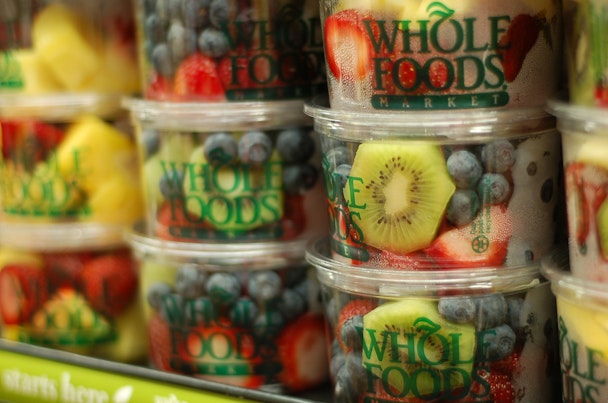Why Amazon’s purchase of Whole Foods Market signals a New World Order for retailers and brands
After 23 years, Amazon has finally made the inevitable move into physical retail with the purchase of Whole Foods Market. The implications for the future of retail can’t be understated. The world of e-commerce has thrived on the diversity of activity from the smallest and coolest brands to large international retailers. A new landscape is emerging where this diversity will be increasingly challenged and retailers and brands will be forced to reinvent to thrive.

What are the implications for retailers of Amazon's purchase of Whole Foods Market?
What does this new landscape look like? Online and offline are merging faster than most imagined possible, with data as the core commodity driving this merger. It strikes us that the vast majority of retailers are at a significant disadvantage to Amazon when it comes to data – both in terms of volume and their ability to make it accessible and actionable to drive sales.
Until last week, retailers held a unique advantage in their offline operations. While ecommerce is the fastest growing segment of retail, 90% of purchases are still made offline. The data from stores, including point-of-sale systems, has the opportunity to be a great equalizer. Unfortunately, few retailers have moved fast enough to make this data accessible and actionable.
The implications for manufacturer brands may not seem as clear, however we believe the risks are just as acute. Brands benefit from diversity of distribution and consolidation will decrease their bargaining leverage. Consolidation will also bring more strength to retailer private label brands, further challenging the traditional role of the brand.
Unconventional times call for unconventional solutions. Moving forward, retailers and brands need to determine areas of core competence where they can invest in extending their advantages – and collaborate in areas of relative disadvantage. Data represents the ability to know and serve customers – the capacity to access and action large amounts of data could literally mean the difference between thriving or dying for retailers and brands.
When it comes to commerce marketing, my own company Criteo has positioned itself to be a central point of this collaboration, an open ecosystem where retailers, brands, and publishers are able to access and pool large online and offline data sets, outside of the walled-gardens and apply technology to re-level the playing field to preserve diversity and profits.
Our goal is to create a win-win approach, where contributions to the ecosystem are fairly rewarded with equal or greater value. Our approach is principled, rooted in openness and transparency, with shopper experience at its heart, while ensuring the security and sanctity of participant data.
In the end, better data can create better marketing leading to a better all-round experience, while simultaneously preserving the choice that retailer and brand diversity makes possible.
Eric Eichmann is CEO of Criteo
Content by The Drum Network member:

Criteo
Criteo is a global technology company that powers the world’s marketers and media owners with trusted and impactful advertising through our world-leading Commerce...
Find out more
